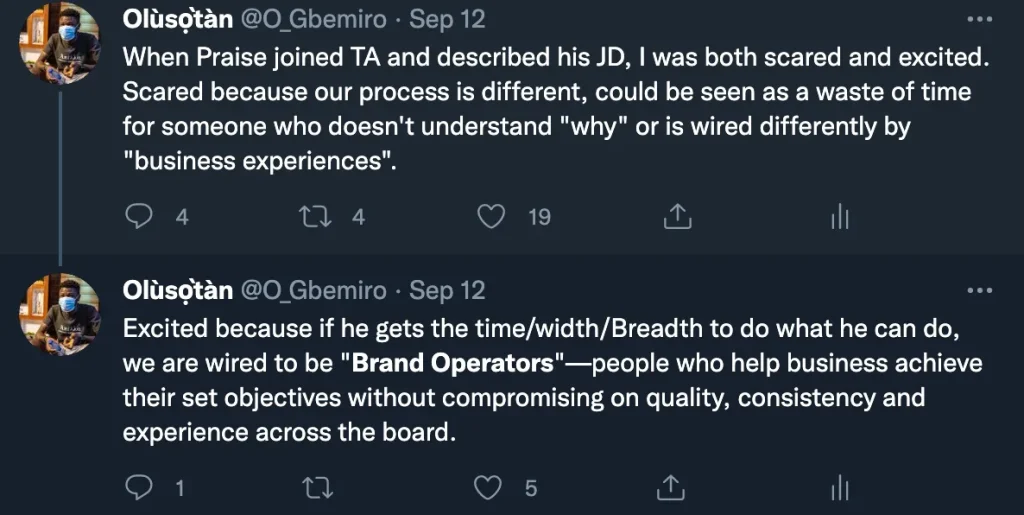The Rise of Brand Operators

This was not the planned title. After I finished the body of work, I was thinking of what to title it, and then I remembered one of my favourite movie titles, “Fantastic Four: Rise of the Silver Surfer,” and this stuck. So, who is a Brand Operator?
Operators!
I started researching them when the media spotlighted Adia Sowho‘s work/effort. I wanted to know why she was so celebrated, and it led me to explore the world of people who do the actual work to scale companies.
I stumbled on this definition of Operator Collective that made a lot of sense to me “In the startup and tech world, operators are the senior leaders who build and scale companies as they grow. They’re not usually in the limelight; most often, they’re the ones working quietly in the background, studying tactics, analyzing data, and figuring out what works. Operators are vital for the success of any startup because they’re the ones building the right infrastructure for scale and long-term growth.”
While the startup world is focused on general operators — people who bring the right skills and just do the work, a few weeks ago, I got more excited about a specialized niche called “Brand Operators.”

Who is a Brand Operator?
These people can complement every other process of running the business with an understanding of how branding (a set of intentional efforts to connect with your people internally or externally) can make it better.
On products, they work in cross-functional teams to align objectives with project managers, sales, design, editorial, and customer service teams to acquire, engage, and retain customer segments.
The essence of their work is to ensure that brands retain a level of consistency across the board, guaranteeing that you reflect the same tone, voice, experience, feel, and quality irrespective of the touchpoints.
Whatever you think your operator will do, imagine the brand operator as the person who can complement these efforts from the brand side.

But before we go, what is a brand?
Your brand is how you define yourself to be experienced by those who want to do business with you. It is the product of a blueprint that considers who you are, what you do, who you do it for, and how you do what you do.
I often hear people say, “Your brand is not who you say you are but what people say you are,” but men, even though I think that this thought has a very valid angle to it, it can be a recipe for disaster. Because there is a conflict between what you see your brand as and how your TA sees you, it is a call to go back to your drawing table and not take up a new identity without doing an overall fluid structure on how you execute across the board.
A brand is a product of an intentional effort(s) — branding/brand strategy.
If you change with every “What people say you are”, you will become many “what people say you are”, depending on where you are per time. However, branding should help you find your people — your crowd, community, people, buyers, influencers, adopters, etc.
Sometimes, the loudest voices are not even your most influential buyers. As a Brand Operator, you job is to midwife a company’s growth, working with all relevant stakeholders internally and externally to ensure that beyond the functional benefits you offer, people have an emotional reason to stick with you.
Back to where we started?
A brand operator’s job is to ensure that you are never off-brand while helping you scale with necessary insights and strategies and executing communication efforts. While some companies already have elements of this in Chief Marketing Officers, Brand Leads, Communication Leads, etc, it could be exciting to see how more startups hack “labels” that embody this experience and the talents that go with it.